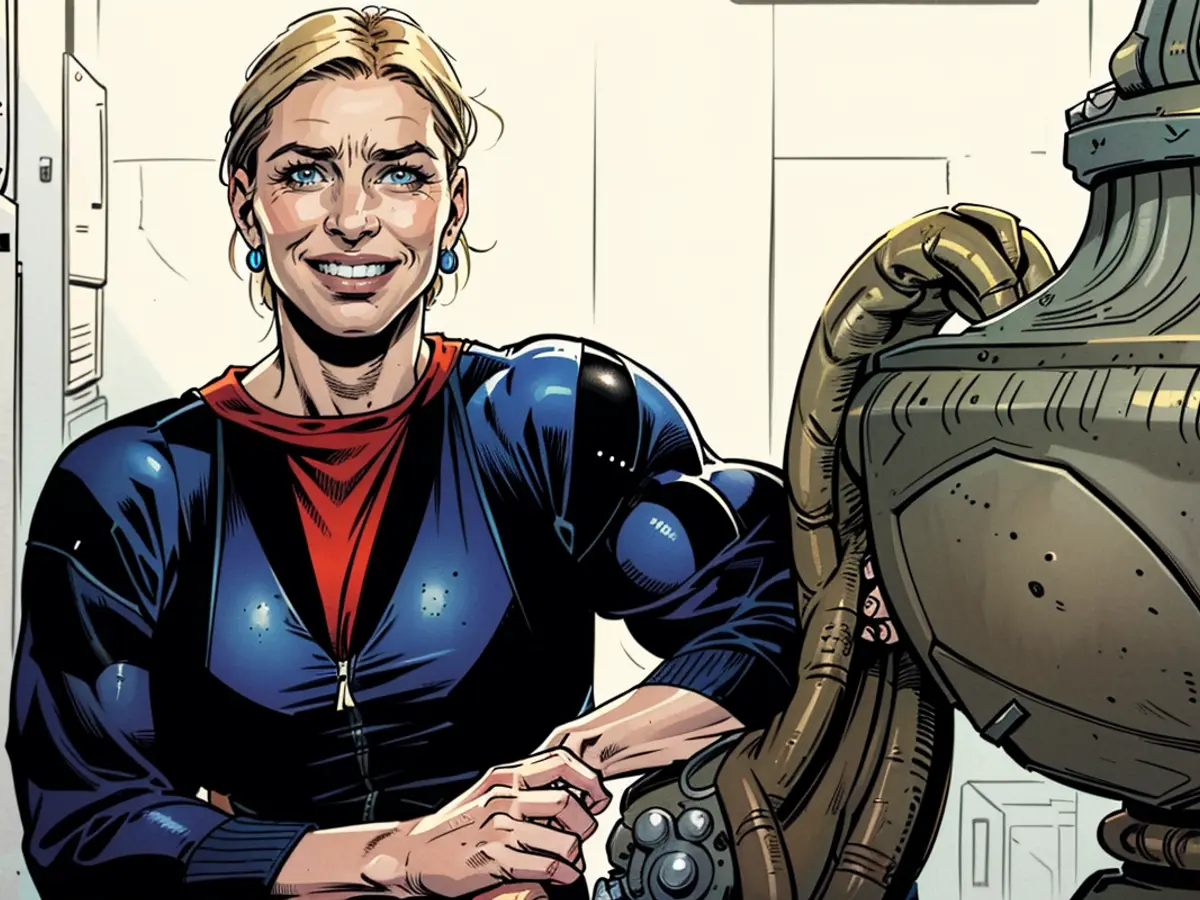Personnel decision - Marion Ackermann first woman to head the Prussian Foundation
With Marion Ackermann, for the first time, a woman takes over the helm of Germany's most powerful cultural institution. The 59-year-old is set to take over the presidency of the Prussian Cultural Heritage Foundation (SPK) next year. The former director-general of the State Art Collections Dresden was appointed as the successor of Hermann Parzinger (65) by the SPK Foundation Council in Berlin, as announced by Culture State Minister Claudia Roth as chairman. Parzinger, who has been in office since 2008, will retire from the position next year due to age.
Ackermann has led the art collections since 2016 as a federation of 15 museums and four institutions. The art historian was previously head of the Art Museum Stuttgart from 2003 to 2009 and head of the Kunstsammlung Nordrhein-Westfalen. In addition, she was active in the Bizot Group, an international association for large exhibition projects, and in the presidium of the Goethe Institute. She has also been active in the SPK Foundation Council.
Excellent Museum Manager
Roth spoke of an excellent choice. Ackermann has shown that she can successfully manage institutions. "She is an excellent museum manager, art practitioner, strategist, and what was also very important for us in the consideration: She is well-connected internationally," said the Green politician. Ackermann will lead the foundation with great creativity, new ideas, and a lot of energy into a successful and sustainable future. The five-year contract, which begins on June 1 of next year, includes an option for renewal.
For the federal states, Saxony-Anhalt's Culture Minister Rainer Robra (CDU) sees in Ackermann "a refreshing external perspective and understanding for federal work." "This combination of outstanding leadership qualities and deep art and cultural understanding makes her the ideal successor," Robra said.
Germany's Largest Cultural Institution
Ackermann announced that she wants to further increase the international reach of the foundation and network and exchange more strongly with colleagues in other states. Regarding the situation in Germany, Ackermann said she wants to contribute to overcoming polarizations with the help of art.
The SPK is the largest and most important cultural institution in Germany. Among the institutions carried by the federal government and all the states, with around 2000 employees and staff, are the State Library Berlin and several institutions, including the State Museums in Berlin with 15 collections and 4.7 million objects at 19 locations. Among them are world-renowned and renowned institutions such as the Picture Gallery, Pergamon Museum, or the houses of the Old National Gallery, New National Gallery, and Hamburger Bahnhof - National Gallery of Contemporary Art.
Reform of the Foundation
So far, the foundation is considered too bloated and not internationally competitive. Therefore, it is receiving a new structure, with which the individual institutions will receive more autonomy, among other things.
The reform also depends on additional funds. Together, all the states contribute around 15 percent of the budget, about 8 percent of which Berlin as the seat contributes. The federal government pays around 85 percent. The current annual budget is 400 million euros, 106 million of which are solely for the construction budget from the federal government.
Meeting on the Future with Chancellor Scholz
Through the reform, an additional financial requirement of approximately 31 million Euro is expected. The states have so far indicated an increase in their share by around three million Euro. No concrete figures have been provided by the Federal Government yet.
According to Roth and Robra, the Federal Government and the states plan to discuss reform and financing in a meeting with Federal Chancellor Olaf Scholz on December 12th.
Federal Minister of Culture and the Media Foundation
- Marion Ackermann, a renowned art historian, will lead Germany's most powerful cultural institution, the Prussian Cultural Heritage Foundation (SPK), starting next year, replacing Hermann Parzinger.
- Ackermann, currently the director-general of the State Art Collections Dresden, was appointed as Parzinger's successor by the SPK Foundation Council in Berlin.
- In her new role, Ackermann, a woman in the helm of the SPK for the first time, aims to increase the foundation's international reach and network.
- The SPK, under the leadership of Ackermann, is expected to contribute to overcoming polarizations in Germany with the help of art.
- Saxony-Anhalt's Culture Minister Rainer Robra sees Ackermann as bringing a refreshing external perspective and understanding for federal work to the SPK, making her the ideal successor.
- The SPK, a federally-funded institution along with the states, is home to world-renowned institutions such as the Picture Gallery, Pergamon Museum, and Hamburger Bahnhof.
- To make the SPK more internationally competitive, the foundation is undergoing a reform, which includes giving more autonomy to individual institutions and requires additional funding.
- Roth, Robra, and other political figures are set to meet with Federal Chancellor Olaf Scholz to discuss the SPK's reform and financing on December 12th.
- The Federal Government, in collaboration with the federal states, is yet to provide concrete figures for the additional funds needed for the SPK's reform and operation.








